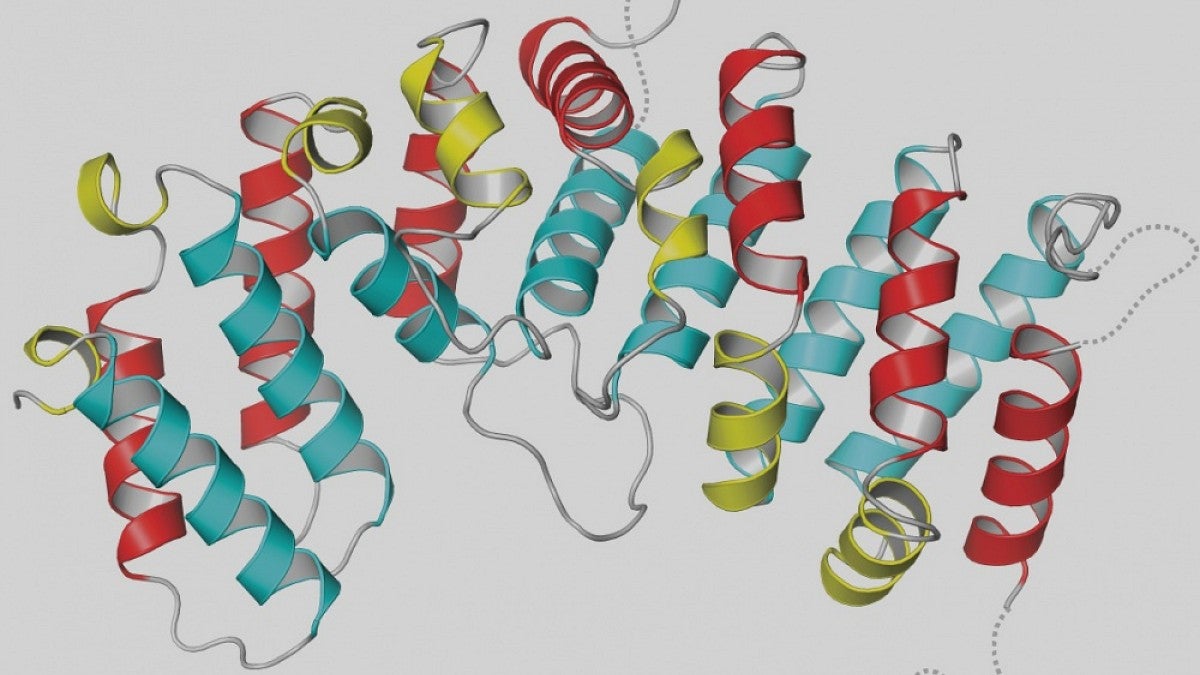Brad Nolen, an associate professor of chemistry and biochemistry, has been awarded a $2.88 million Maximizing Investigators Research Award from the National Institutes of Health.
The award is a prestigious five-year grant that will provide funding for researchers in Nolen’s lab to examine the cytoskeleton. The cytoskeleton is the molecular scaffold that gives cells their shape and allows them to exert forces required for them to divide, crawl and take up material from their surroundings. Specifically, Nolen’s lab looks at the protein molecules that allow cells to control the assembly of microscopic filaments that make up the cytoskeleton.
The award provides greater funding stability and flexibility for research programs. It means Nolen will be able to spend more time conducting research and less time writing new grants to keep his lab funded.
It will also provide salaries for the researchers currently working in the lab and will allow him to hire more. Nolen recently hired a new research assistant who brings an impressive background in research at the NIH.
“It’s really a privilege to run an academic research lab, and I’m grateful to know that we will be well funded for the next five years,” Nolen said. “It’s really exciting to think about all of the experiments we’ll be able to do because of this funding.”
Nolen’s lab also employs two postdoctoral scholars and one graduate student who were instrumental in preparing the grant application.
“The work that they did to collect the preliminary data for the grant was absolutely critical to the work getting funded,” Nolen said. “Everyone is amped up to get back in the lab and get things going again.”
Michael Lynch is also one of Nolen’s postdoctoral research associates. Lynch joined the lab last September and called working in Nolen’s lab an amazing experience.
Lynch said that funds from the grant will have a significant effect on his work, which focuses on understanding a particular protein reaction. Understanding that biochemical process is important because without it the proteins involved cannot properly function in cells, which can contribute to human diseases ranging from genetic disorders to cancer.
To understand how the molecules work, the Nolen lab purifies them from the molecular soup that is created when cells are broken open and their contents released. Once the molecules are purified, the lab can precisely measure how they interact and what activities they carry out. These measurements are critical to understand how the molecules function in the cells.
“We will be able to purchase a new fast protein liquid chromatography system, which will allow us to readily purify and characterize proteins of interest,” Lynch said. Such systems “are a major workhorse in any chemical biology/biochemistry lab because if you can’t purify a protein, you can’t study it in vitro.”
Heidy Narvaez has been a postdoctoral scholar in Nolen’s lab since November 2018. Narvaez said that the grant will allow her and other researchers in the lab to focus on the research and to incorporate new techniques.
“I love the hands-on aspect of science,” Narvaez said. “The most exciting part of working with Dr. Nolen in the lab has been learning new microscopy techniques and standardizing new methods useful for our lab and for the whole scientific community.”
One of the great things about the research being conducted in his lab, Nolen said, is its connections to processes relevant to understanding human disease.
For example, bacteria and viruses hijack a host cell’s cytoskeleton to evade the immune system, and cancer cells reprogram the cytoskeleton to drive the migration of tumor cells during metastasis. Nolen hopes that a better understanding of the cytoskeleton will reveal ways to stop these processes from occurring in human disease and eventually lead to new treatments.
“Since starting my position at UO, I’ve had the opportunity to interact with a lot of great scientists who think about biological problems on larger scales,” Nolen said. “This has helped us expand our research program and to delve more deeply into how the molecular workings of molecules ultimately control biological processes on the cellular and even organismal level. I think being at the UO has really helped us create a research program with a greater impact on our understanding of biology.”
—By Denise Silfee, Research and Innovation


